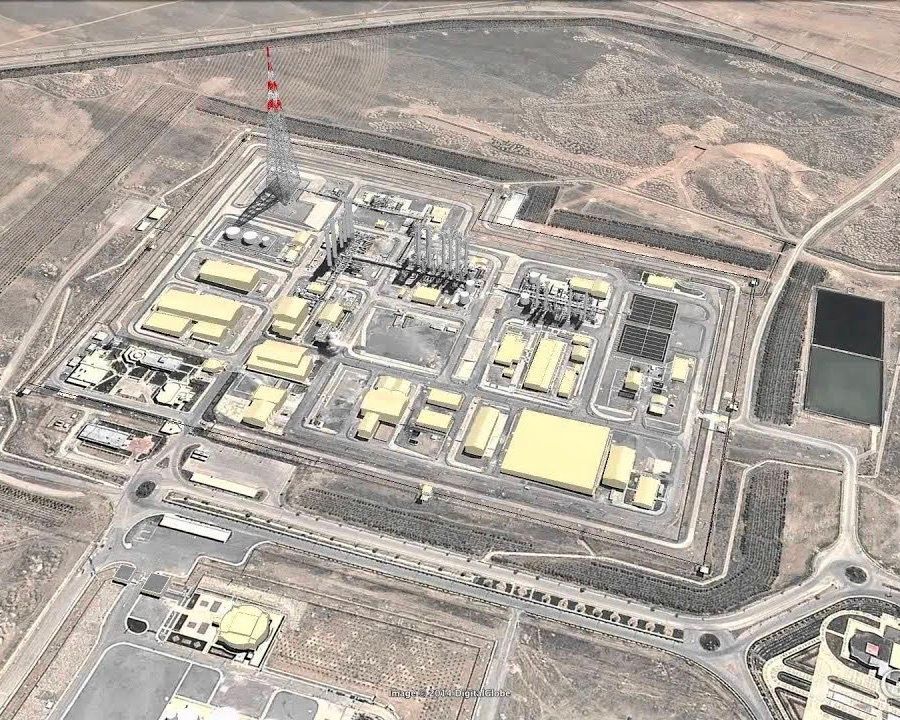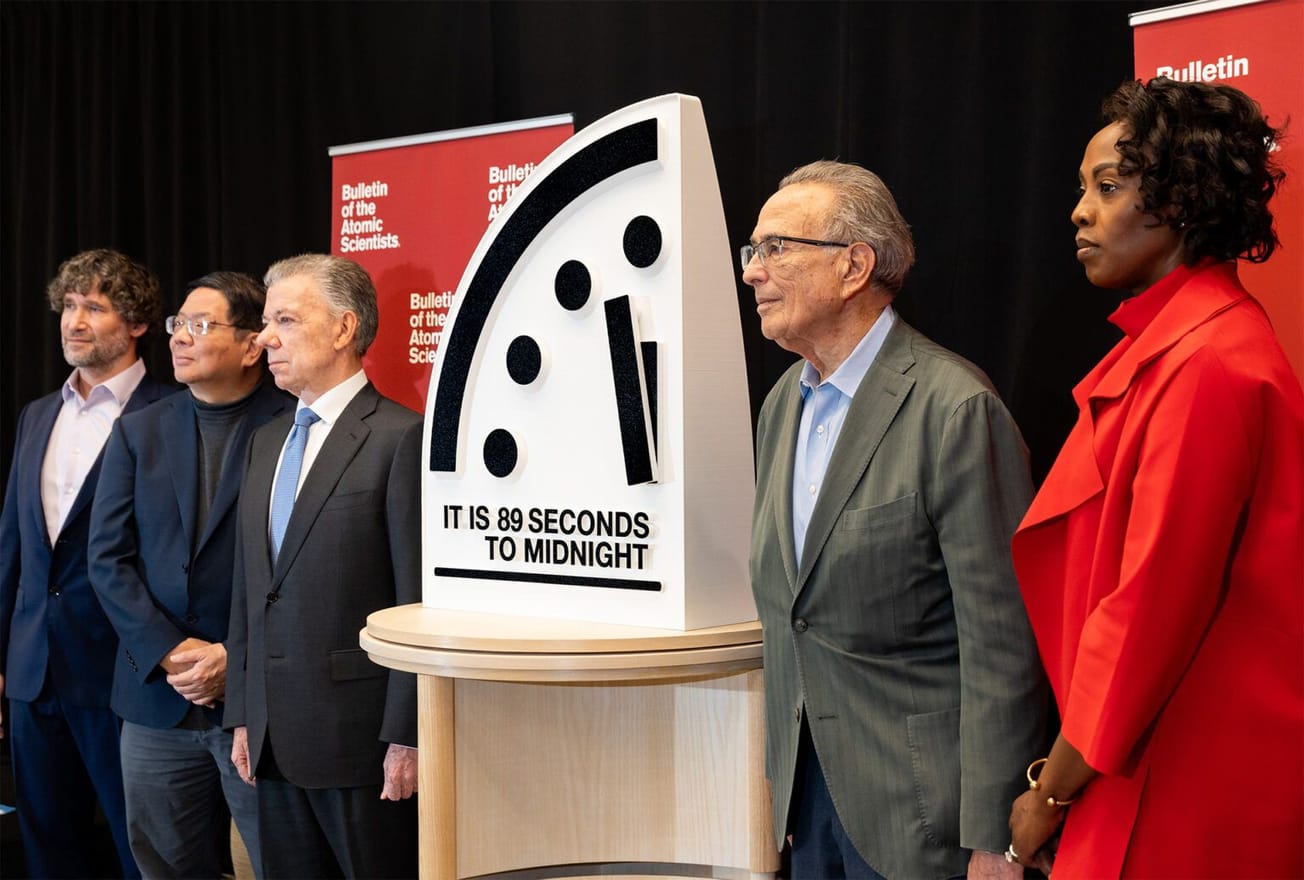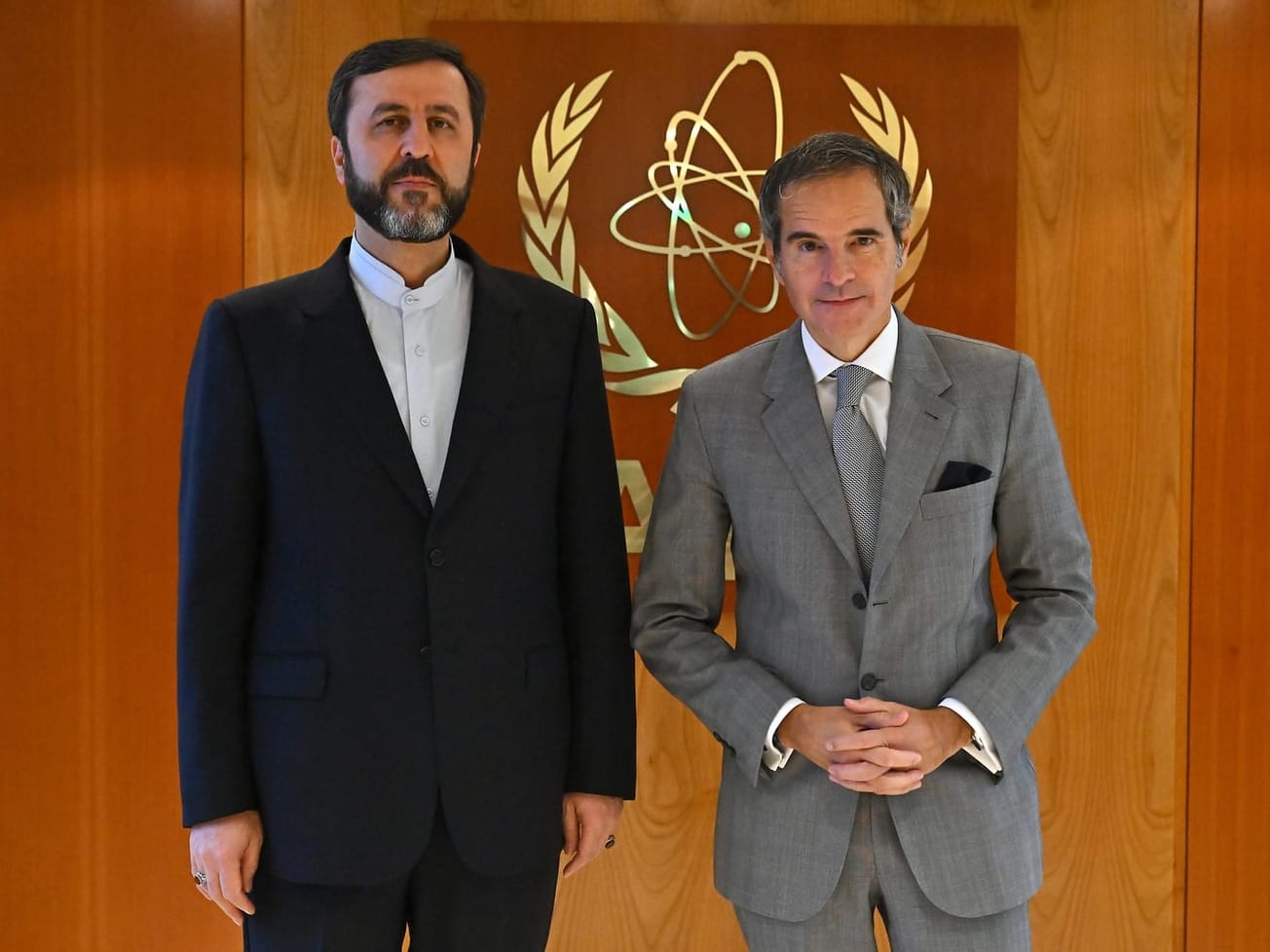VIENNA (AN) — After a week of European-led shuttle diplomacy between the United States and Iran aimed at resuscitating the 2015 nuclear deal, Iran's President Hassan Rouhani announced on Saturday that Tehran has begun testing its newest advanced IR-9 nuclear centrifuge to speed uranium enrichment.
The world powers that remain in the faltering 2015 nuclear deal with Iran hosted the indirect U.S.-Iran talks between the two parties this past week in Vienna with the goal of bringing the U.S. back into the agreement. Diplomats said they were optimistic about how things have proceeded. The "proximity" talks were due to resume next week.
U.S. President Joe Biden signaled his interest in reviving the landmark deal, known as the Joint Comprehensive Plan of Action, or JCPOA, that former President Obama supported — with Biden as his vice president — and former President Trump abandoned.
Biden, however, must juggle his administration's foreign policy goals in Iran and elsewhere with its need to maintain support in Congress for its multitrillion-dollar agenda of rejuvenating America's pandemic-hit economy and rebuilding infrastructure.
European diplomats sought specific, verifiable steps Iran could take to comply with the deal in return for the U.S. easing its crippling economic sanctions on the Islamic Republic.
Since Trump reneged on the JCPOA in 2018, Iran fell out of compliance by increasing its stockpiles of enriched uranium and decreasing U.N. inspectors' access to nuclear sites — moves meant to pressure the remaining signatories to the deal to compensate for U.S. sanctions. The U.S. now wants the deal extended in time and scope.
On Saturday, Rouhani marked Iran's annual Nuclear Day with announcements on state-run media that its IR-9 centrifuge was being tested to separate uranium isotopes dozens of times faster than its first IR-1 centrifuge.
Iran said in early January it had resumed enrichment of uranium to 20%, which cuts in half the time it takes to get to 90% — the level needed for weapons grade uranium. Tehran, however, maintains that its nuclear program is for peaceful purposes, and not to produce weapons.
“I reiterate that all Iran’s nuclear activities are peaceful and for civil purposes," Rouhani said in a speech reported by the Islamic Republic News Agency, or IRNA. “In terms of technology, we achieved today IR-9 centrifuges with capability of 50 SWU, which is 60 times more powerful than first generation centrifuges."
That marked a return to roughly the level that Iran had before the JCPOA. After the deal was in place, Iran was limited to enriching uranium to 3.67%, just enough to fuel a commercial nuclear power plant, and its low-enriched uranium stockpile was capped at 300 kilograms of uranium hexafluoride, or 202.8 kilograms of uranium.
Iran has now stockpiled 55 kilograms of 20% enriched uranium, up from 17 kilograms in January, Iranian officials said.
It is no longer fully cooperating with the U.N.'s watchdog International Atomic Energy Agency, or IAEA, which had been sealing up Iran's nuclear material and equipment and using surveillance cameras to analyze hundreds of thousands of images from Iran's nuclear facilities. Iran's parliament ordered the government in December to curtail cooperation with the Vienna-based IAEA.
Wang Qun, the Chinese envoy of @ChinaMissionVie on Tue urged the United States to lift all illegal sanctions against #Iran and its "long-arm jurisdiction" against third-party entities and individuals, including those from China, as the Iran nuclear deal talks resumed in Vienna. pic.twitter.com/cRrksWLrRp
— China News 中国新闻网 (@Echinanews) April 7, 2021
Untying the knot
Iranian and U.S. diplomats entered the indirect talks at a stalemate. Iran wants the U.S. to lift sanctions before Tehran resumes full compliance, since it was the former Trump administration that first broke from the long-negotiated deal. The U.S., in turn, wants Iran to first comply with the deal again before any easing of sanctions.
In Vienna, however, the two nations at least came to an understanding that they could try doing both of those things simultaneously. There are now two working groups in the Austrian capital with parallel aims: one is focused on persuading the U.S. to lift sanctions; the other is examining how to get Iran to follow the JCPOA's limits again.
"Two expert-level groups (on sanctions-lifting and nuclear issues) were tasked to identify concrete measures to be taken by Washington and Tehran to restore full implementation of JCPOA," Russia's envoy to international organizations in Vienna, Mikhail Ulyanov, said on Twitter. "The groups started to work immediately."
The JCPOA initially included all five permanent members of the 15-nation United Nations Security Council — Britain, China, France, Russia and the United States — plus Germany and the European Union. It imposed enforceable curbs on Tehran's nuclear ambitions in exchange for lifting U.N.-authorized sanctions on Iran.
In 2015, the council unanimously endorsed the JCPOA. Three years later, President Trump's decision to withdraw from it and to reimpose sanctions inflamed transatlantic tensions.
"We recognize this to be potentially the start of a process, knowing that we do have a long — a potentially long road ahead," the U.S. State Department's Ned Price told a press briefing."These talks are indirect, and as a result, the mechanics of them can be cumbersome. It will be hard because these are very technical and complex issues."
China’s envoy in Vienna, Wang Qun, argued that the United States should make the first move by rescinding sanctions, then Iran should restore its full compliance.
"It is the hope of China that all parties will sustain such momentum in a bid to reach an early consensus on getting the U.S. and Iran back to full and effective implementation of the JCPOA, and bring the JCPOA onto the normal track as soon as possible," he said in an interview with news media carried by China's official Xinhua News Agency.
"The current status of the Iranian issue is undoubtedly attributable to the U.S. pullout of the JCPOA, and its maximum pressure policy towards Iran. And Iran has subsequently been compelled to reduce its commitments to implementing the JCPOA as a countermeasure," he said. "We in China have a saying that 'the one who ties the knot should be the one to undo it.' "








